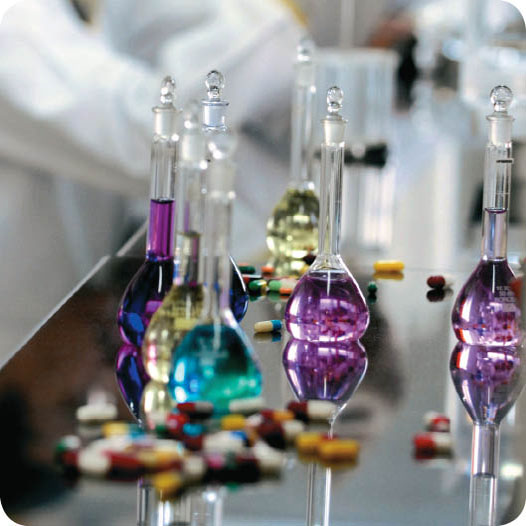
drugstr
Central, NJ
Male, 61
I have worked as a drug discovery scientist for over 30 years performing experiments to help identify novel chemical compounds for their potential in treating diseases in the areas of infection, inflammation and cardiovascular disorders. I have a good familiarity with the entire process from discovery to safety to clinical trials and even marketing. Ask me about the business of Big Pharma. I’m happy to comment on any and all hot-button issues. My opinions are quite often not pro-business.
Every drug carries risks of side-effects which are sometimes dangerous. Doctors are responsible for determining whether the curative value of a prescription outweighs these risks. A competent physician does this with full knowledge of the drug profile and an intimate knowledge of the patient’s condition. A drug manufacturer applies to the FDA for permission to market a drug for a particular indication by submitting clinical evidence proving safety and efficacy. A drug may have more than one indication in its ‘label.’ Doctors are free, however, to prescribe drugs ‘off-label’ for a condition not specifically approved by the FDA. There may be published reports to support this or the doctor may have had good results with similar agents. They do this at their peril, though. They may be liable for injury. Doctors are human and may be subject to pressure from patients, drug companies, politicians, or criminals to prescribe in a way that is not in the best interest of their patient or worse, to support the dangerous and illegal trafficking of narcotics. So to answer your question, doctors may succumb to various pressures to use their power to prescribe in ways that may cause harm, thus violating their oath.
I don’t know what you mean by fraudulent. Is it the most counterfeited, the most unauthorized generic, or the one that I would say does not perform as claimed? Frankly, I don’t have an answer for any of these. My pet peeve is the endless promotion of herbals, and formulations that promise better memory, vision, prostate health, weight loss, etc. I don’t believe their ‘clinical’ evidence.
No I haven't. I never worked with patients nor am I aware of any one dying from an adverse event while on a drug that I was involved in developing.
These two drugs are not chemically related. Both have sedation as a side effect of their modes of action. Trazadone is an antidepressant. Etorphine is a powerful synthetic opiate significantly more potent than fentanyl. It's considered too dangerous to be used in human medicine. In veterinary medicine its use often requires reversal with an antidote. Thus, it's not practical as a treatment for insomnia.
Certified Nurse Aide
 Have you ever seen any 'senior abuse' in your nursing home?
Have you ever seen any 'senior abuse' in your nursing home?
Investment Banker
 What's the craziest partying you've ever seen among bankers?
What's the craziest partying you've ever seen among bankers?
Special Education Teacher
 Should special-needs students be separated from other students?
Should special-needs students be separated from other students?
This is not a pharma question and I’m not expert in colligative properties, however, my understanding is that freezing point depression is a function of the molality of a solute in a solution. The molality represents the total number of dissolved particles. You’re obviously familiar with this since your list includes compounds of increasing molal potential. I submit that based on molality, aluminum chloride would be best so long as the solution was fairly dilute. While the others nicely dissolve in water, AlCl3 reacts with water and forms HCl, a dissolved gas. In a concentrated solution some of the HCl would degas and thus lower the molality reducing the freezing point depression. So if your goal is a several degree drop, choose CaCl2. It’s a safer bet.
This is not a pharma question.No numbers have been changed. Evidently, a CDC report on comorbidities was the source of this misinformation.
According to the FDA there is no effective HCQ regimen for the treatment of COVID-19. Its emergency use is no longer authorized. I refer you to the link below for answers to your three questions.https://www.fda.gov/drugs/drug-safety-and-availability/fda-cautions-against-use-hydroxychloroquine-or-chloroquine-covid-19-outside-hospital-setting-or
-OR-
 Login with Facebook
Login with Facebook (max 20 characters - letters, numbers, and underscores only. Note that your username is private, and you have the option to choose an alias when asking questions or hosting a Q&A.)
(A valid e-mail address is required. Your e-mail will not be shared with anyone.)
(min 5 characters)
By checking this box, you acknowledge that you have read and agree to Jobstr.com’s Terms and Privacy Policy.
-OR-
 Register with Facebook
Register with Facebook(Don't worry: you'll be able to choose an alias when asking questions or hosting a Q&A.)